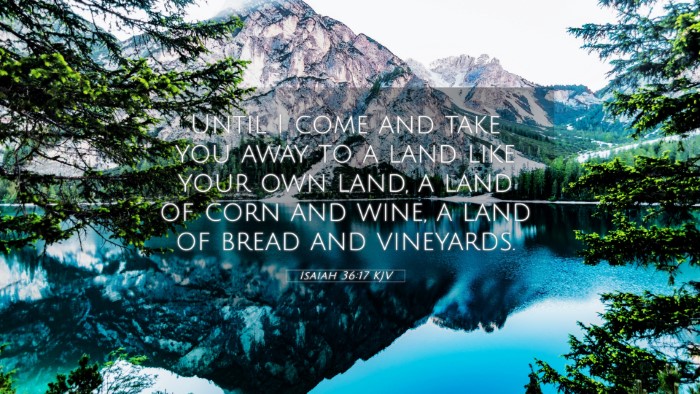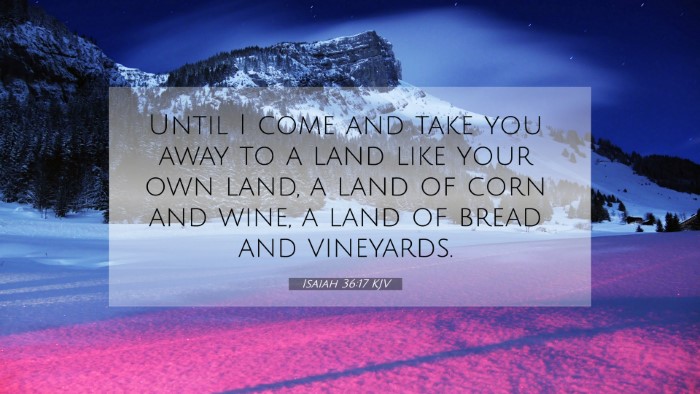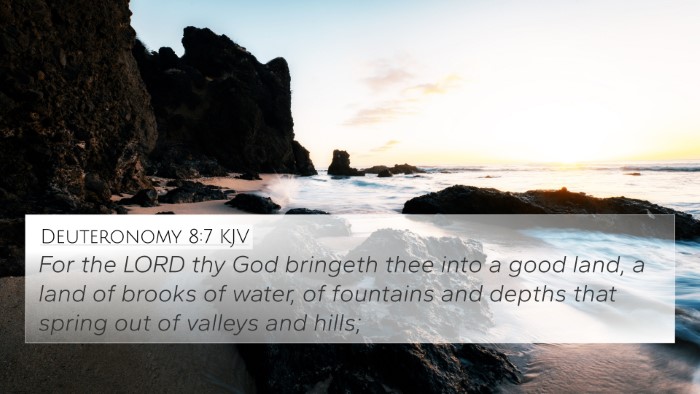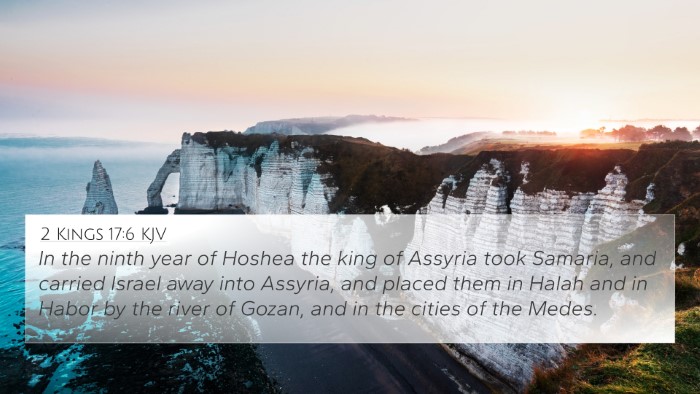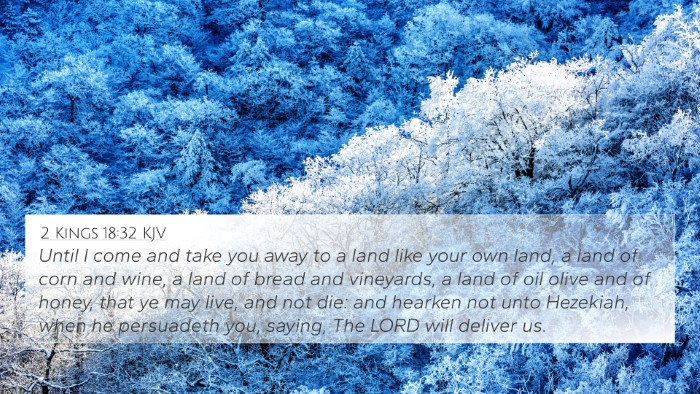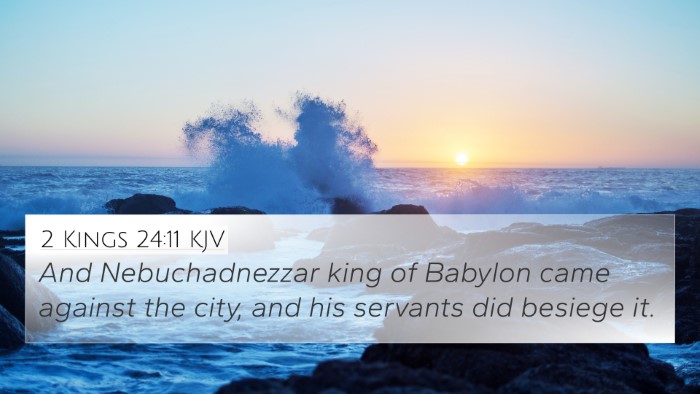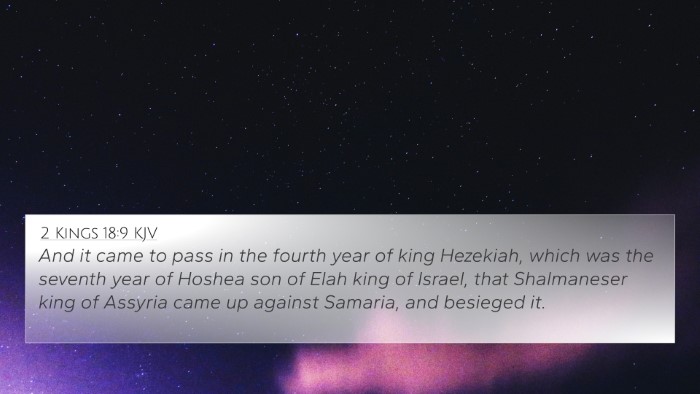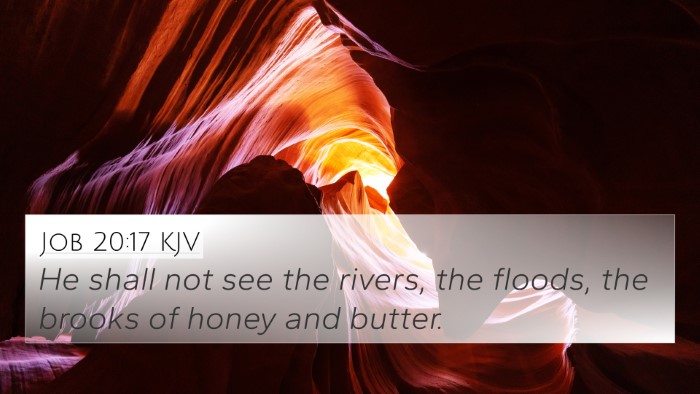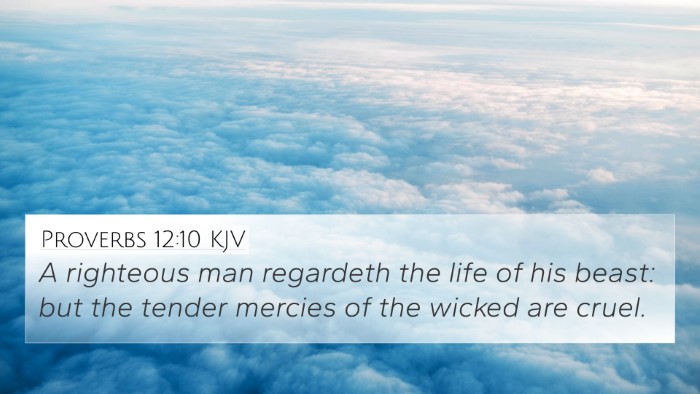Understanding Isaiah 36:17
Verse: Isaiah 36:17
"Until I come and take you away to a land like your own, a land of grain and new wine, a land of bread and vineyards."
Summary of Context
This verse is part of a larger narrative in which the Assyrian king, Sennacherib, sends his commander to Jerusalem to confront King Hezekiah. The Assyrian envoy's goal is to instill fear and skepticism among the people of Judah about their reliance on God for deliverance.
Interpretations and Insights
-
Matthew Henry:
- Conditional Promise: Henry emphasizes the conditional nature of the promise in this verse, suggesting that it was part of an attempt by the Assyrians to convince the people to surrender. The promise of a land of abundance contrasts sharply with their current struggle, illustrating the manipulative tactics used by Sennacherib.
-
Albert Barnes:
- Rhetorical Strategy: Barnes notes that the Assyrian commander's words are designed to undermine Hezekiah's leadership by creating doubt about God's ability to protect them, using the allure of material prosperity to tempt them.
-
Adam Clarke:
- Historical Context: Clarke highlights the historical context, indicating that the promise of a rich land was meant to intimidate the inhabitants of Jerusalem, presenting their current situation in an unfavorable light. He invites readers to consider how God ultimately provides for His people despite threats.
Connections with Other Bible Verses
This verse parallels several other scriptures, offering a richer understanding through cross-referencing:
- Jeremiah 29:11: "For I know the plans I have for you," declares the LORD, "plans to prosper you and not to harm you, plans to give you hope and a future."
- 2 Kings 18:32: "Until I come and take you away to a land like your own, a land of grain and new wine, a land of bread and vineyards."
- 1 Peter 5:10: "And the God of all grace, who called you to his eternal glory in Christ, after you have suffered a little while, will himself restore you and make you strong, firm and steadfast."
- Psalm 37:25: "I was young and now I am old, yet I have never seen the righteous forsaken or their children begging for bread."
- Isaiah 54:4: "Do not be afraid; you will not be put to shame. Do not fear disgrace; you will not be humiliated."
- Matthew 6:33: "But seek first his kingdom and his righteousness, and all these things will be given to you as well."
- Romans 8:28: "And we know that in all things God works for the good of those who love him, who have been called according to his purpose."
Thematic Connections
This verse highlights several important themes throughout scripture:
- Faith vs. Fear: It exemplifies the struggle of faith against intimidation and fear of immediate circumstances.
- Divine Providence: Emphasizes the belief that God controls the outcomes of His people's lives, even when it seems they are in dire straits.
- Material vs. Spiritual Wealth: The promise of physical abundance is contrasted with spiritual enrichment found in trusting God alone.
Conclusion
Isaiah 36:17 serves as a poignant reminder of the tactics employed in spiritual warfare, urging believers to remain steadfast in faith and aware of the larger narrative of God's providence. The insights from public domain commentaries deepen our understanding, and cross-referencing enhances our Bible study. By exploring both Old and New Testament connections, we find that God consistently calls His people to trust in Him rather than be swayed by external threats or temptations of material gain.
Tools for Further Study
For those interested in further exploring the connections between Bible verses, consider using:
- Bible Concordance
- Bible Cross-Reference Guide
- Comprehensive Bible Cross-Reference Materials
- Cross-Referencing Bible Study Methods

